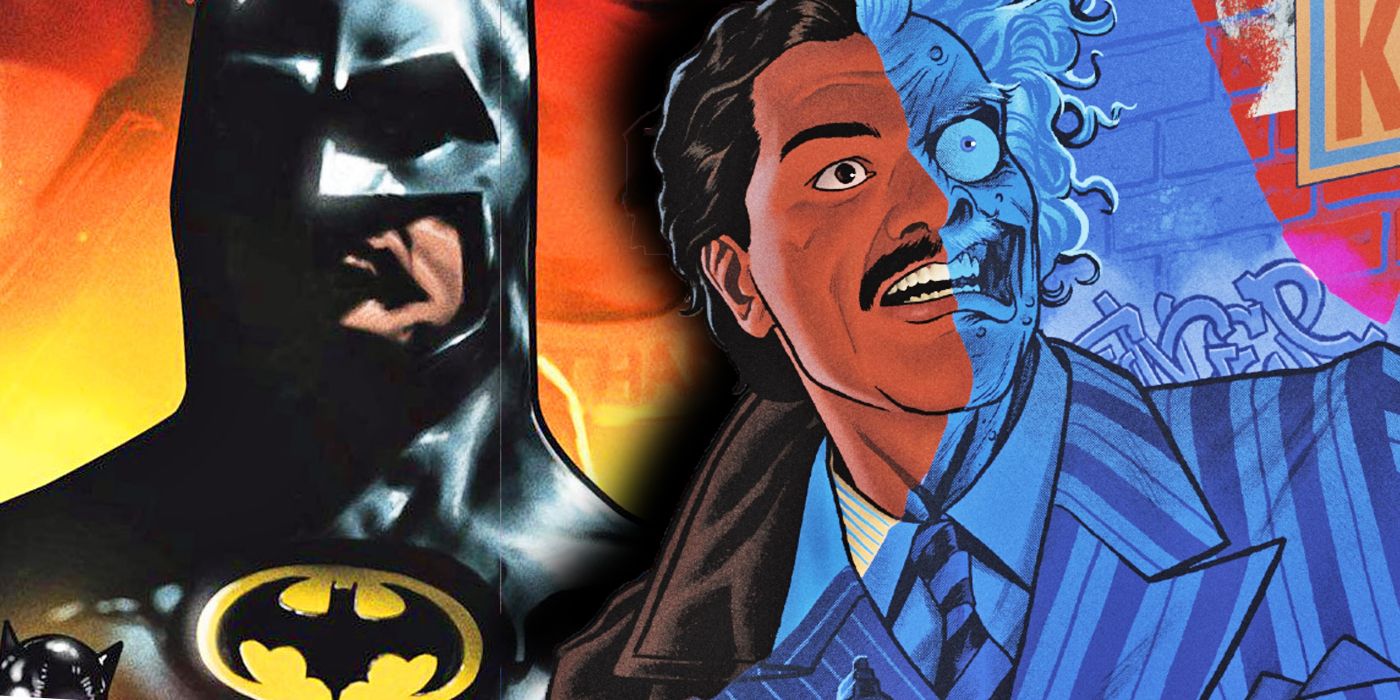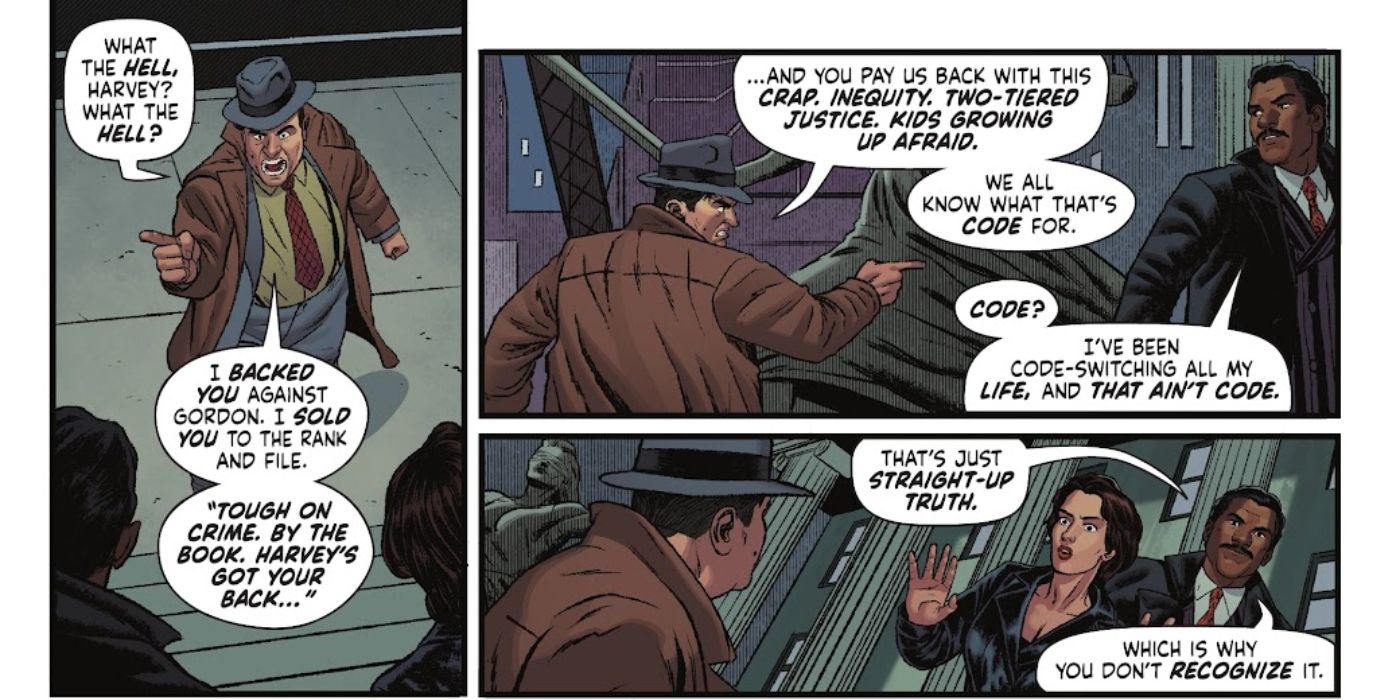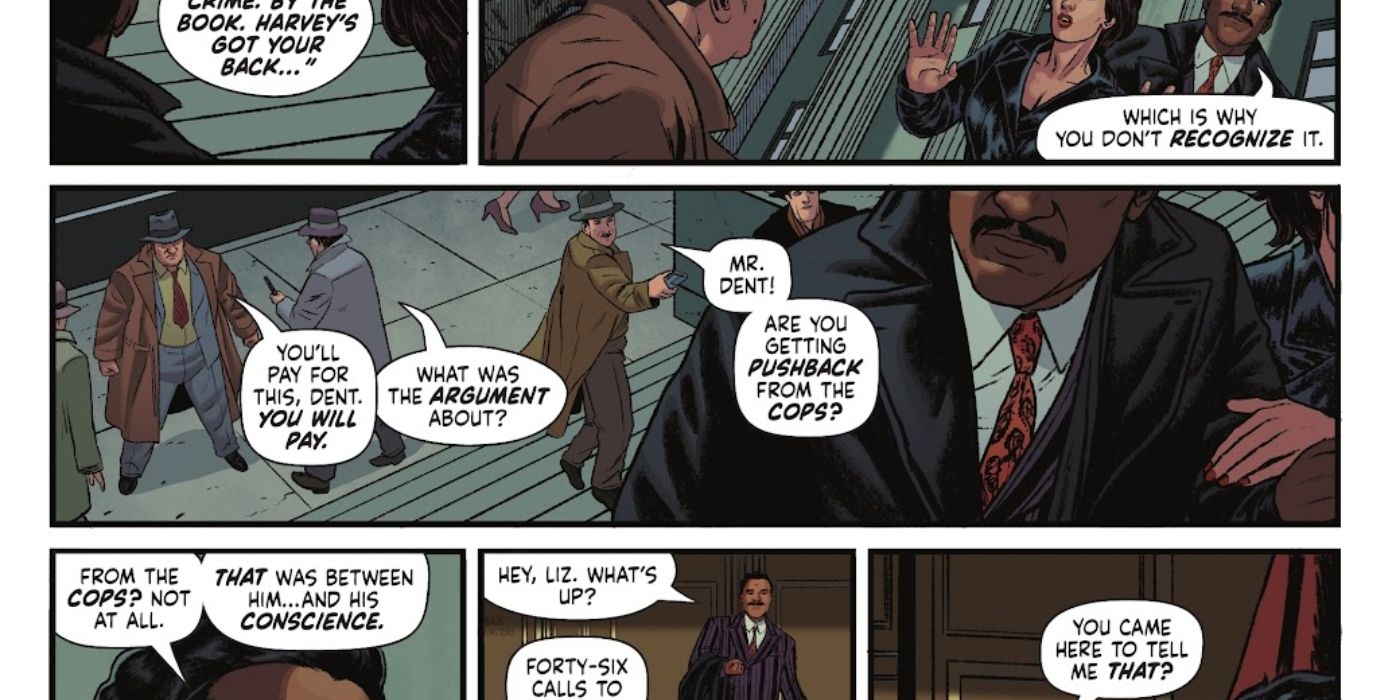WARNING: The following article contains spoilers from Batman '89 #2, available now.
As Batman '89 continues to explore and expand on the world established in Tim Burton's Batman movie, Harvey Dent finally make his move to get rid of Batman. He genuinely believes that Batman makes Gotham City more dangerous and has started his crusade against Batman by attacking his legitimacy. To help him, Dent targeted noted Batman ally Commissioner Jim Gordon with help from Harvey Bullock. However, the partnership between those two Harveys takes a notable downturn in Batman '89 #2, by Sam Hamm, Joe Quinones, Leonardo Ito and Clayton Cowles.
But after a trip back to his community in the wake of recent gun violence, Dent has redirected his efforts to focus on the inequality prevalent in Gotham towards its Black communities. This change of heart angered Bullock, who traditionally has a heart of gold beneath his gruff exterior, but in this universe seems far more corrupt.
Dent had initially set out to remove Gordon through a vote of no confidence, asking Harvey Bullock to win over support from the rest of the police department by selling Dent to them as someone who is by-the-books and would support them. The fact that Bullock helped him not only hints that he has a strong dislike of Batman's vigilante style of justice, but that he feels as though Gordon turned his back on the police department. This would be an understandable position from an ordinary Bullock, a man who respects the law being caught between personal loyalty and professional loyalty. But it was Dent's change in perspective that exposed Bullock's true nature.
After Dent gave a rousing speech about how Gotham had to fight inequity and the growing violence found in Black communities, Bullock accosted Dent in the middle of an interview. He felt betrayed because Dent had seemingly gone from supporting the police to turning his back on him. Bullock had perceived Dent's words to mean that Dent would now be making sure the police obey the law instead of Batman. The heel turn infuriated Bullock, who called Dent "two-faced" and promised he would pay for what he did.
But this also exposes a flaw in this universe's Bullock. He may seem like a law-loving detective -- and that part probably remains true -- but he is also a firm believer in the status quo. Batman's presence changed that and Gordon allowed it, so Bullock was onboard with removing both from the equation if things could go back to the way they were. Then, Dent seemed to turn his back on the police, threatening a status quo that has existed long before Batman showed up, so now Bullock has his sights set on Dent.
It's an interesting examination of what about the system Bullock values. If he truly despises Dent for "betraying" the police by siding with the communities they have continuously abused and harmed over decades, then that reveals that Bullock loves not only the status quo, but the authority it gives him over lives he may not deem important.
If this much is true, then it's possible that there is a level of corruption within Bullock that has yet to be fully revealed. He and Jim Gordon are usually seen as the two heading up the Gotham Police Department, but of the two of them, Bullock was always the one that seemed more willing to walk a darker path.
And given that he promised Dent would pay for his betrayal, it seems likely that Bullock will take extreme measures to ensure that Dent would suffer for challenging the status quo. This could have the potential to turn Bullock into Gotham's next villain, maybe not a supervillain like the Joker, but someone who works within a corrupt system to ensure it doesn't get dismantled.



